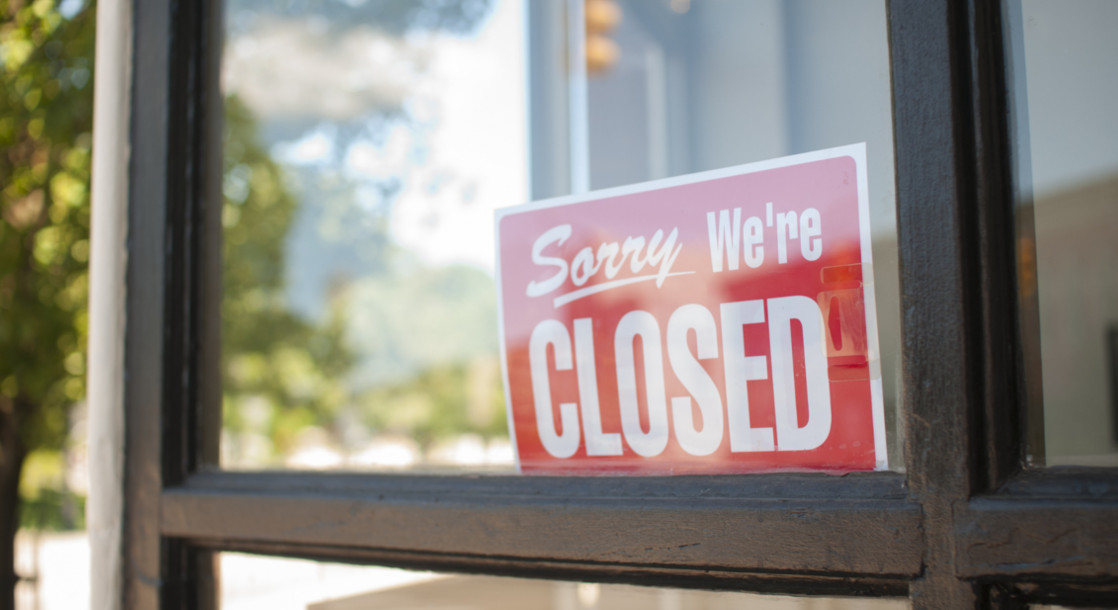Photo via huePhotography
With California's new adult-use and medical cannabis market due to launch this January, everyone's wondering what to expect. But with so much hype around legalization, January 1st might be a bit anticlimactic. If you were hoping to buy fully legal weed, first make sure your go-to dispensary is licensed.
The greatest obstacle in the way of a fully operational legal market is the discrepancy between state and local licensing. That is, after having released emergency regulations last month, the state is now ready to grant temporary licenses to compliant businesses — but those businesses must first receive permission from their local municipalities. A number of localities have either yet to release regulations, have issued bans on cultivation or other forms of cannabis business, or have issued regulations that make it difficult for local businesses to comply.
As of December 18, the state's Bureau of Cannabis Control had released a few more than 30 dispensary licenses, according to Alex Traverso, chief of communications. The Bureau's online system has over 2,600 users who have registered for the purpose of filling out applications. Earlier this week, the Bureau had received around 350 applications
"I anticipate over the course of the next couple weeks, a lot of applications to come through, and to turn them around pretty quickly," Traverso says. "Especially if they have local authorization in place, it will be an easy process. We're trying to make it as simple as possible to get a temporary license."
But it's not so simple if you can't get local licensing. Traverso says local jurisdictions are often found to be in one of three different stages: 1) those who have a ban in place because they don't want commercial cannabis activity, 2) those that have a temporary ban in place because they won't be ready by January, and 3) those who have an ordinance in place and are issuing local permits.
It'll be difficult, depending on where you are in the state, says Joshua Drayton, communications and outreach director for the California Cannabis Industry Association. Only 28 percent of municipalities [as of press time] are moving forward with creating regulations, he adds. Major cities like Berkeley, Oakland, San Jose, San Diego, Ukiah, and have nonetheless moved forward to license storefronts. In cities like Los Angeles, in particular, however, it's cripplingly complicated.
No dispensary in the City of Angels will be licensed to sell adult-use cannabis come January; even medical dispensaries that don't wish to sell to everyone must reapply for medical marijuana licenses (although they won't be at risk of immediate closure under the city's guidelines). At a press conference Friday, Cat Packer — head of L.A.'s Department of Cannabis Regulation — explained that the city wouldn't start accepting license applications until January 3, and those apps will take at least three to four weeks to process. During the city's first phase, the city will accept applications from dispensaries that were compliant under Proposition D (the city’s previous law for medical cannabis dispensaries); during the second, they'll take applications from non-retailers, like cultivators and manufacturers, who were operational prior to 2016; and in the final stage, everyone else can apply. After April, if a business is still operating without at least a temporary license, they will be subject to fines — as much as $20,000 a day, per violation. The city’s Department of Water and Power is even authorized to disconnect utilities for violators. And until applications are released for those second phase applicants — a date which the city has yet to announce — they may have to temporarily shut down.
"We all are struggling about the licenses! Between having to make modifications, upgrade systems, and pay the lawyer compliance fees of up to $80,000, we are all running around tirelessly! I remember when this business used to be fun," dispensary operator Oliver Summers tells MERRY JANE. "The people I know who are the most worried are the L.A. cultivators, who are basically just waiting to get licensed so they can start growing. One guy is sitting in his practically empty warehouse waiting for the legal go-ahead."
With a focus on licensing dispensaries first, Los Angeles has left cultivators in limbo. Erik Holstrom, founder of Legacy Strains, says he can't get a temporary license yet because the city he still needs a local permit from the city.
"I'm not sure they'll get around to processing me by the end of the year," says Holstrom. "Nobody in the cultivation or manufacturing space knows if we'll have a pathway in time." For cultivators, that's particularly difficult, since only licensees can do business with licensees, so if L.A.'s cultivators remain unlicensed, then L.A.'s dispensaries will have to get their bud from outside the city.
"It's difficult to run a business without income coming in, it will devastate my business," Holstrom says. "I know family-run manufacturing brands that have been around for five, ten years that are basically saying goodbye on social media January 1." What's worse than losing crop is losing employees. "It will be brutal to have to let everyone go for a period of time until we can apply for a license," he says. "One of my people is a single mom with three kids. It's hard to support three kids on the jobs she had before working here."

A temporary state license for cannabis retail, via Torrey Holistics
It's equally difficult outside Los Angeles. Billie Thibodeau, founder of Emerald Alchemy, can't get a cultivation license because her property is just under the five-acre requirement. She can't get a manufacturing license to make cannabis tinctures, water hash, elixirs, and body care products because her municipality in northern California stopped accepting applications two weeks before she found a manufacturing facility with the correct zoning. To pay her rent, she's leasing out that facility until they start accepting applications again, and has created a whole other company in the last month to manufacture non-cannabis goods.
Thibodeau’s exasperated. She's considered moving to to the next county over, but even there she says there are few buildings that qualify under local rules for a manufacturing application. It's a huge application, no less, which asks for site-specific security, engineering, architectural, layout, and manufacturing plans, plus more. You need the facility before you even apply.
"It's just so mind bogglingly expensive to do all this," says Thibodeau. "And for an independent woman like me, it's pretty intense.” On top of the property fees, she needs to worry about attorneys' fees, licensing fees, the sheer requirement that she have $200,000 in the bank, and she must prove that she'll bring in tax dollars.
"It really is just a race [of] trying to fit into these unimaginably difficult requirements to actually continue your manufacturing," she says. "And right now, I have accounts [with dispensaries] throughout California, and they're not placing orders with me because they're worried I'm not going to get a license. It's a vicious catch-22. The ones who actually are communicating with me right now ask when I'll have my license, and I [have to] say, 'I don't know, I'm trying my hardest to get it.' I need income to invest in these lawyers."
"All of this regulation and application mess is about business and making money, and all these counties want to see is that they'll get taxes," she says. "I've poured my heart and soul into my work for ten years. I've been paying my taxes, I've been through being arrested, I've been through all kinds of crap with partnerships, being taken advantage of, and through that I kept telling myself, 'You're doing this because you're going to make it, you'll get your license before everyone.' That was my carrot, and with Prop 64, that's gone, they just took it, they stole my future. I'm well respected as a brand that people trust. I've done everything right and that got me nowhere. I'm pissed."
In the time it takes for businesses like Holstrom's and Thibodeau's to get back on their feet, if and when they do get licensed, it might be too late. Dispensaries are already making their orders. Businesses that take months to become operational again, post January 1, are at risk of losing their clients. It will be that much harder for them to make it in the legal industry once they do get licensed.
"There will be people operating January 1 who won't have state licenses," says Traverso. "That's where enforcement comes into play. We'll get out there and help to either nudge those folks into the regulated market, or help them shut down." He says it's not fair for tax-paying licensees to compete with those on the unregulated market.
Cultivators, for instance, will be hit heavy with fines. "Those operating without a license are subject to civil penalties of up to three times the amount of the license fee each day they do not obtain a license. Other civil and criminal penalties may apply as well," explains Steve Lyle, director of public affairs for CalCannabis Cultivation Licensing, of the California Department of Food and Agriculture.
Tawnie Logan, chair of the Sonoma County Growers Alliance, says the distinction between the regulated market and the black market isn't so cut and dry. There are operators who want to be regulated who are ineligible for licensing, but that doesn't mean they are committed to the black market.
"In the unregulated market, operators who have gone above and beyond the call of duty but still don't have access to licenses — that's the self-regulated market," she says. "This new emerging industry was built upon the self-regulated market that's been fighting for access, and fighting for the right to produce medicine all these years."
So while consumers have cause to be excited for January 1, it seems that most canna-businesses will continue to experience a mix of anticipation and nervousness as they try to find their place in California’s newly legal weed market.











